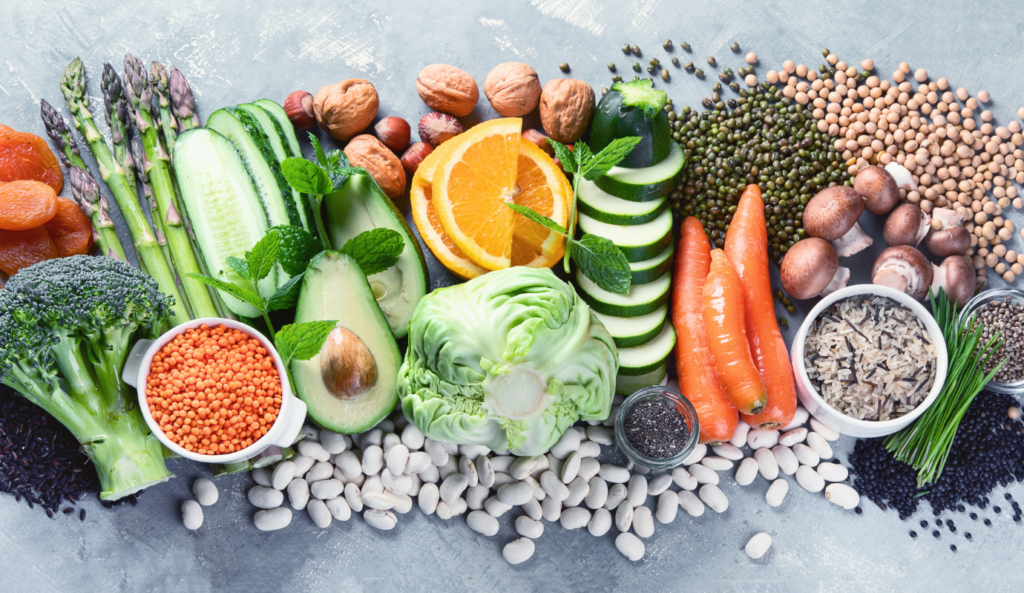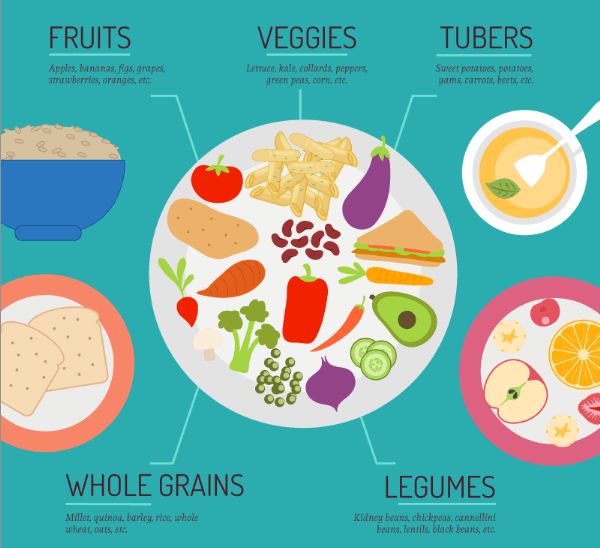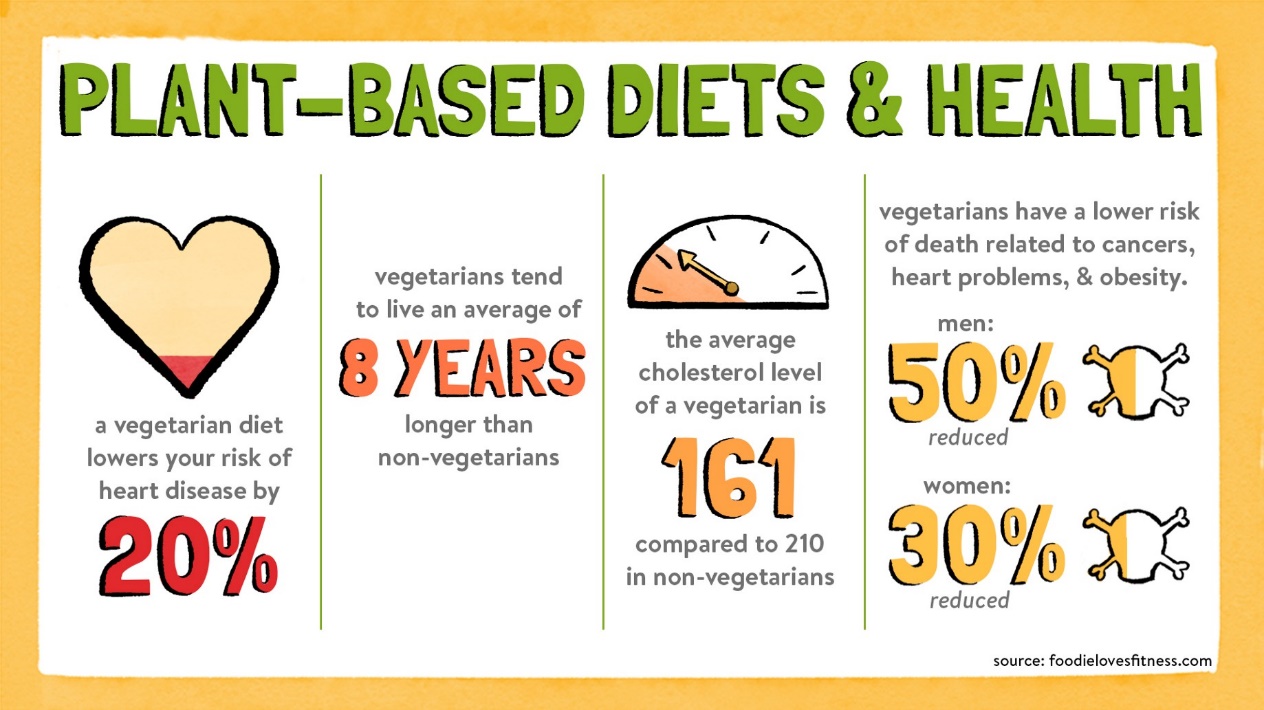While the idea of a plant-based diet used to be one that few have tried, it has quickly turned into an entire movement.

Many people opt to go more plant-based due to the positive impact this choice can have on animal welfare, agricultural practices, and the environment. Transitioning into a plant-based diet may seem daunting, but a few helpful tips can ensure it’ is as easy as possible.
Find the Why
First, you want to consider why you are motivated to adopt a plant-based diet. Identifying this will be the motivating factor for you to make a consistent effort. Whether you are looking to take advantage of the health benefits a plant-based diet offers, or you feel strongly about animal and environmental welfare, any reason is good enough.
What Are the Health Benefits?
The medical and scientific community has highly dissected the plant-based diet, and encouraging results show just how powerful an impact it can have on your health.
Some of the scientifically proven health benefits of a plant-based diet are:
- Maintaining a healthy weight long-term
- Lower risk of cardiovascular disease
- Lower risk of diabetes
- Lower risk of some cancers
- Decreased risk of hypertension and cholesterol issues
- Staying energized throughout the day
Does Plant-Based Mean Vegan?
A common misconception is that a vegan diet and a plant-based diet are the same things, and they are not. A vegan diet allows for anything that isn’t derived from animal sources, while a plant-based diet is more concerned with eating whole foods from the earth that are not overly processed or manufactured.

What Kinds of Foods Can I Eat?
Many foods that you are most likely already enjoying may already be plant-based. Or, there are plant-based versions of those foods that are just as delicious but are more nutritionally dense. While some trendier plant-based foods like legume pasta and kale chips can be pricey, it is possible to eat plant-based regardless of your food budget.
Some of the most common foods that make up a plant-based diet include fruits and vegetables. They also include legumes, whole grains, and nuts or seeds. In addition, this diet focuses on eating foods that are not heavily processed or anything too refined, such as some oils and sugars.
Where Do I Get Started?
It is important not to throw out all animal-derived and processed products around your home and go full force into a plant-based diet. Instead, take things one step at a time, and the transition will feel much less overwhelming. Start with eliminating one food group at a time, such as meat or dairy.
Start with a couple of plant-based meals a week and get a feel for what you like and do not like. Then, find new recipes that let you utilize the ingredients you do like in a new way. Then, continue to build up the number of plant-based meals you consume each week.
How Can I Avoid Getting Overwhelmed?
The following way to transition into a plant-based diet would be to start making it a priority for one of your meals to be plant-based each day. This could be breakfast, lunch, or dinner. In addition, start trying new items you do not typically find on your menu and add more plant-based foods to the rest of your daily meals.
What About Protein?
Protein is one of the common areas of concern for those opting for a plant-based diet. It is a myth that you can’t get a sufficient amount of protein without eating animal products. Many plant-based foods like beans, legumes, tofu, and quinoa are just some examples of protein-rich plant-based foods.
What Kinds of Meals Can I Easily Incorporate into My Diet?
Some failsafe meal ideas incorporate plant-based ingredients and don’t require a lot of skill or time in the kitchen. For example, soups and stews are perfect for packing a ton of nutrition into a healthy meal. In addition, a large pot can be spread through multiple meals by freezing what you don’t eat right away. It can also help you use a lot of leftover ingredients.
Stir-fries and sheet pan dinners are also simple to whip up on a busy day. Any vegetable can be roasted in the oven with some healthy oils, and you can add a grain like quinoa or bulgar to add some extra sustenance.
How Can I Plan for Success?
Eating a plant-based diet will require more thought when planning out your meals for the day. In addition, you will have to make some effort to prepare food at home. Therefore, meal prepping and meal planning are two essential skills to acquire for a successful diet.
It would also be beneficial to discuss your diet change with your health care provider to ensure you have expert support along the way. Your health care provider can also help ensure you are getting the vitamins and nutrients you need and recommend supplements if necessary.
How Can I Avoid Sabotaging My Diet?
Eating a plant-based diet does not mean you have to give up everything you enjoy. On the contrary, no diet will ever be successful without some indulgence now and then. The goal is to think more critically about the foods you eat and look at food as fueling your body and spirit instead of a means to an end.
It is also crucial to be patient with yourself. There’s no need to put unnecessary pressure on yourself to eat a perfect plant-based diet. If you slip up or give in to a particular craving, it does not mean that you have failed.
How Can I Get the Best Out of Eating Plant-Based Foods?
If you are looking for an overall improvement in your well-being, changing your diet will not do it all. Instead, make moving your body and practicing healthy mental habits a priority as well. Drinking lots of water, doing physical activities you enjoy, and meditation or journaling will work wonders for your health.

How Do I Navigate Social Gatherings?
You should not feel the pressure to justify why you’ve made this decision for yourself. It may be tricky to navigate social gatherings for a while with your new diet, but you can always bring a dish to ensure you can eat while you mingle. Give people a heads up and some suggestions about what you like if they insist on having options for you available.
Where To Dine Out
Your options for eating out will differ depending on where you live. Many cuisines that incorporate plant-based foods into their diets include Indian, Mexican, and Mediterranean. It might be wise to research a menu before saying yes to going to a restaurant.
To read more on topics like this, check out the Lifestyle category
Leave a Reply